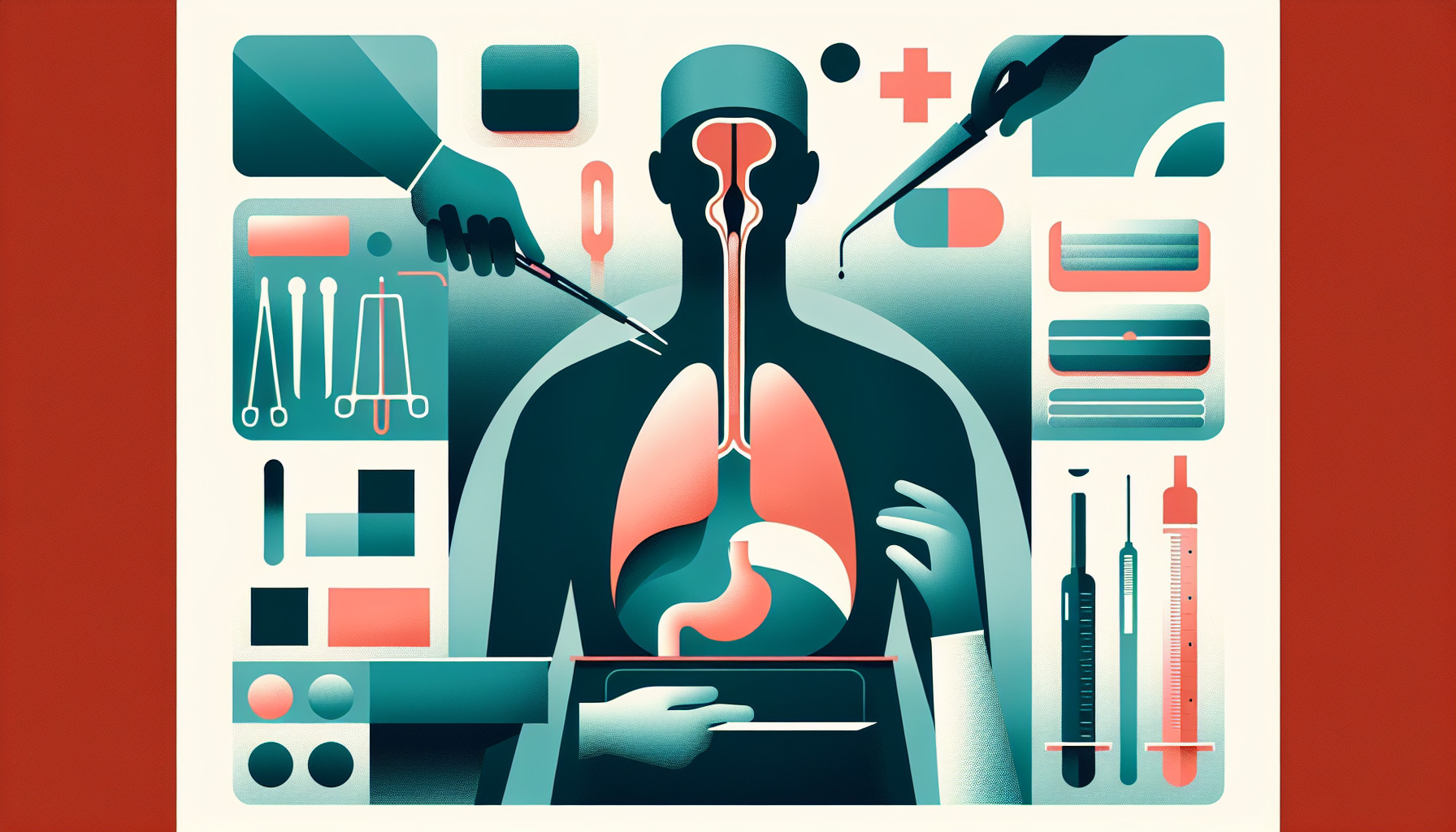Our Summary
This study reviews the safety and effectiveness of same-day discharge for children with Obstructive Sleep Apnoea (OSA) who are undergoing an adenoidectomy and tonsillectomy. OSA is a common reason for these surgeries in children, and they are usually kept overnight for monitoring. However, some patients may be able to return home the same day.
The study found that the criteria for same-day discharge varied a lot, and there are no standard guidelines. Of the children who were considered for same-day treatment, between 28.7%-100% were actually discharged on the same day, with an average rate of 96.1%.
The rates of post-surgery breathing problems and the need for further treatment varied widely, from 0% to 27.3% and 0.4% to 6.8%, respectively. No deaths were reported.
The researchers concluded that same-day discharge seems safe for some patients, but more research is needed to understand which patients can be safely discharged on the same day. This could lead to more confidence and use of same-day discharge, improving the system.
FAQs
- What is the average rate of same-day discharge for children undergoing adenoidectomy and tonsillectomy due to Obstructive Sleep Apnoea (OSA)?
- What are the rates of post-surgery complications for children who undergo same-day discharge after adenoidectomy and tonsillectomy?
- Is it safe to discharge children on the same day after they undergo adenoidectomy and tonsillectomy due to OSA?
Doctor’s Tip
One helpful tip a doctor might tell a patient about tonsillectomy is to closely follow post-operative care instructions, including taking prescribed pain medication, staying hydrated, and avoiding strenuous activities. It is also important to watch for signs of infection or complications, such as persistent bleeding or difficulty breathing, and to contact your doctor immediately if any concerning symptoms arise. Additionally, getting plenty of rest and eating soft, cold foods can help with a smoother recovery process.
Suitable For
Typically, patients who are recommended for tonsillectomy are those who have recurrent tonsillitis, sleep-disordered breathing (such as obstructive sleep apnoea), or enlarged tonsils causing difficulty with breathing or swallowing. Children are more commonly recommended for tonsillectomy compared to adults, as they tend to have more frequent infections or issues related to enlarged tonsils. In the case of obstructive sleep apnoea, tonsillectomy may be recommended if other treatments have not been effective in improving symptoms.
Timeline
Before tonsillectomy:
- Patient experiences symptoms such as frequent sore throats, difficulty swallowing, and sleep disturbances due to enlarged tonsils and adenoids.
- Consultation with an ENT specialist to determine if surgery is necessary.
- Pre-operative tests and evaluations are conducted to ensure the patient is fit for surgery.
- Patient undergoes the tonsillectomy procedure under general anesthesia.
After tonsillectomy:
- Patient is monitored closely in the recovery room for any immediate complications.
- Patient may experience pain, swelling, and difficulty swallowing in the days following surgery.
- Patient is given pain medication and advised on post-operative care, including diet restrictions and activity limitations.
- Follow-up appointments are scheduled to monitor healing and address any concerns.
- Patient gradually resumes normal activities as healing progresses.
What to Ask Your Doctor
- Am I a candidate for same-day discharge after my tonsillectomy?
- What criteria do you use to determine if a patient can be discharged on the same day?
- What are the potential risks and complications of same-day discharge after a tonsillectomy?
- How will my pain be managed at home after the surgery?
- What symptoms should I watch out for that may indicate a complication after going home?
- How soon should I follow up with you after the surgery?
- Are there any specific activities or foods I should avoid after the surgery?
- What is the expected recovery time for a tonsillectomy, and when can I resume normal activities?
- Are there any long-term effects or complications I should be aware of after the surgery?
- What should I do in case of an emergency after being discharged on the same day?
Reference
Authors: Gowda S, Leong WS, Edafe O. Journal: Clin Otolaryngol. 2022 Sep;47(5):553-560. doi: 10.1111/coa.13946. Epub 2022 Jun 4. PMID: 35603525
